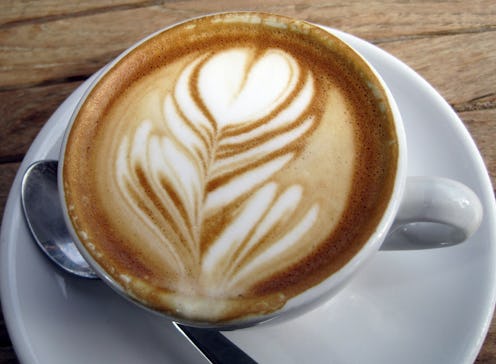
I haven't had a chance to check out the Starbucks Reserve Roastery and Tasting Room yet; alas, I live clear on the other side of the country from Seattle, which has served to be something of an obstacle with regards to visiting the fancy-schmancy location. But hey, at least I can learn how to brew the perfect cup of coffee according to one of the folks who helped open the place, right? Coffee expert Chad Moore recently revealed a few helpful pointers for making the most of your favorite beans at home — and if you're as into coffee as I am, they're worth considering. Each method of brewing obviously has its own quirks, so once you decide whether you want to go with French press, drip, or something entirely different, you'll want to read up on that particular type of maker; even so, though, there are a few tips and tricks that will stand you in good stead no matter which method you choose.
Here are four important takeaways; head on over to the Starbucks News Room to read more. Because nothing's more important than coffee, right? Right.
1. Pick your brewing method and the coffee to go with it.
What method you use really depends on what you want out of your cup. Here's how it breaks down:
- French press: Says Moore, “A coffee press doesn't have a paper filter, just metal mesh. So you get all the oil, all the flavor. It produces a nice full-body coffee that's a little smoky [and] sweet.” He recommends using a dark roast.
- Pour-over: Want just one cup of coffee? Go for a pour-over. It's quick to make — maybe two to three minutes, according to Moore — and it works well with lighter roasts.
- Drip coffee: Drip makers get a bad rap, but they're fast, they're easy, they're often programmable, and as long as you're careful with all the other steps — choosing the right grind, getting the proportions right, and using good quality water — you'll still end up with a perfectly palatable cup.
- Cold brew: Obviously if you just want a fast cup, cold brew isn't the way to go — unless you've made it ahead of time. It takes about 12 hours on average for the cold brew method to produce the required coffee concentrate, but the result is a cup with much lower acidity.
2. Pick the right grind.
How coarsely or finely you grind your coffee will make a huge difference in how the finished drink tastes. According to Moore, too fine a grind traps water and turns your coffee bitter; but on the other hand, too coarse a grind will result in a weak and tasteless beverage. However, you can't just pick any ol' grind; each method of coffee brewing has its own sweet spot. The coffee enthusiast website I Need Coffee has a fabulous chart that shows you exactly what each grind for each method should look like, so head on over there for the visual; the short version, though, is as follows:
- French press: Use a coarse grind that's roughly the texture of sea salt.
- Pour-over: Use a medium-fine grind—unless you're using a Chemex, in which case you'll want a medium-coarse grind.
- Drip coffee: If you have a drip coffee maker that uses flat-bottom filters, go for a medium grind; if you have one that uses cone filters, though, use a finer one more akin to granulated sugar.
- Cold brew: Extra coarse. Seriously, you guys. SO COARSE.
Also? Grind it fresh, every time. I mean it.
3. Pay attention to your water.
I am usually too lazy to do anything other than turn on my tap; however, you're probably better off using filtered water. Soft water and well water will also probably end up tasting kind of weird. Moore says that “water heated to just off the boil”— somewhere between 195 and 205 degrees Fahrenheit — will do “the best job of extracting the coffee's full range of flavors.”
4. Measure it out.
You might already know this one, but the proportion of coffee to water matters. A lot. Generally, you'll want to use two tablespoons of ground coffee for every six ounces of water. Too much coffee and not enough water might make your brew bitter; but at the same time, not enough coffee will result in a weak and unmemorable drink. Life's too short for bad coffee, so pay attention to the proportions.
Happy caffeinating, my friends!
Images: INeedCoffee.com/Flickr; Giphy (5)